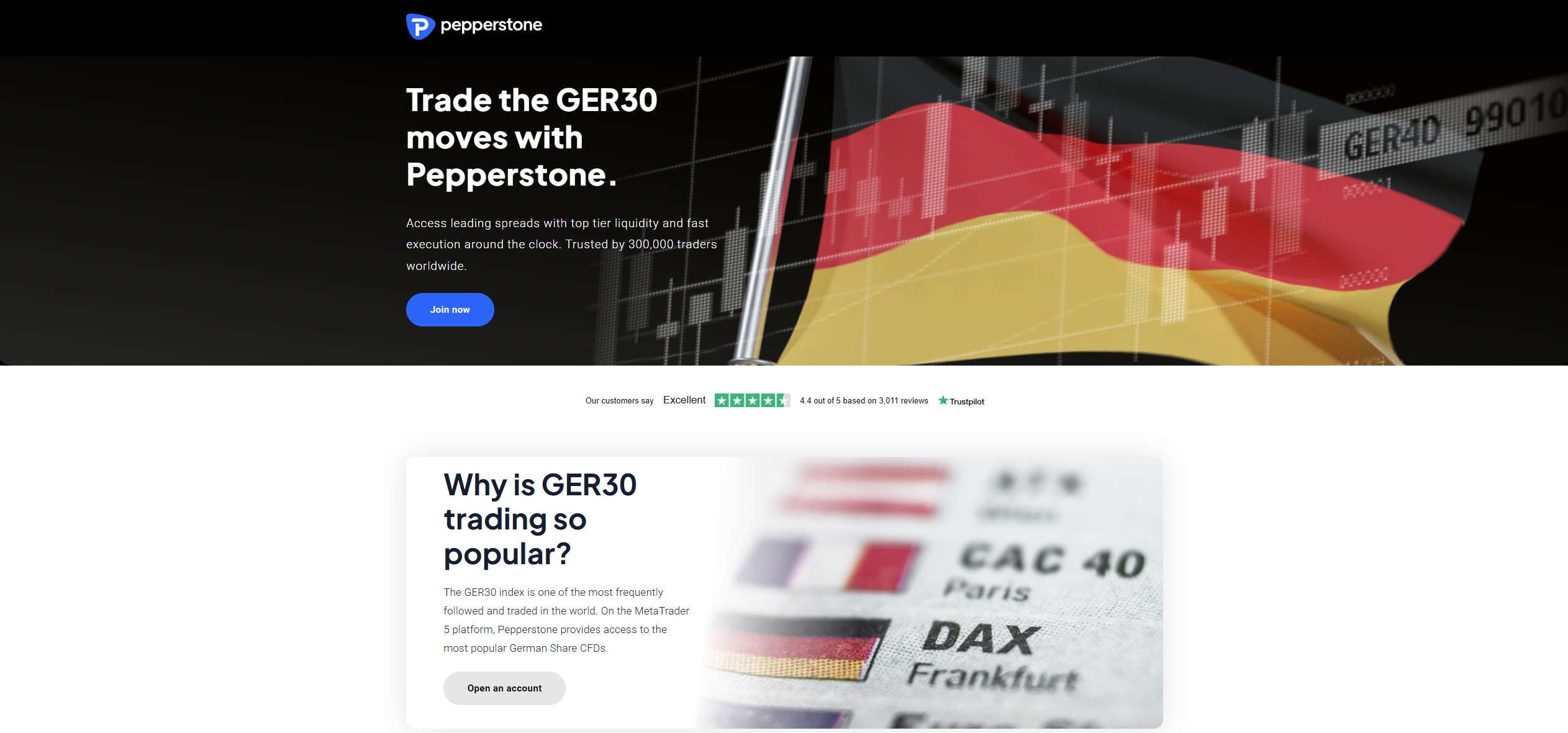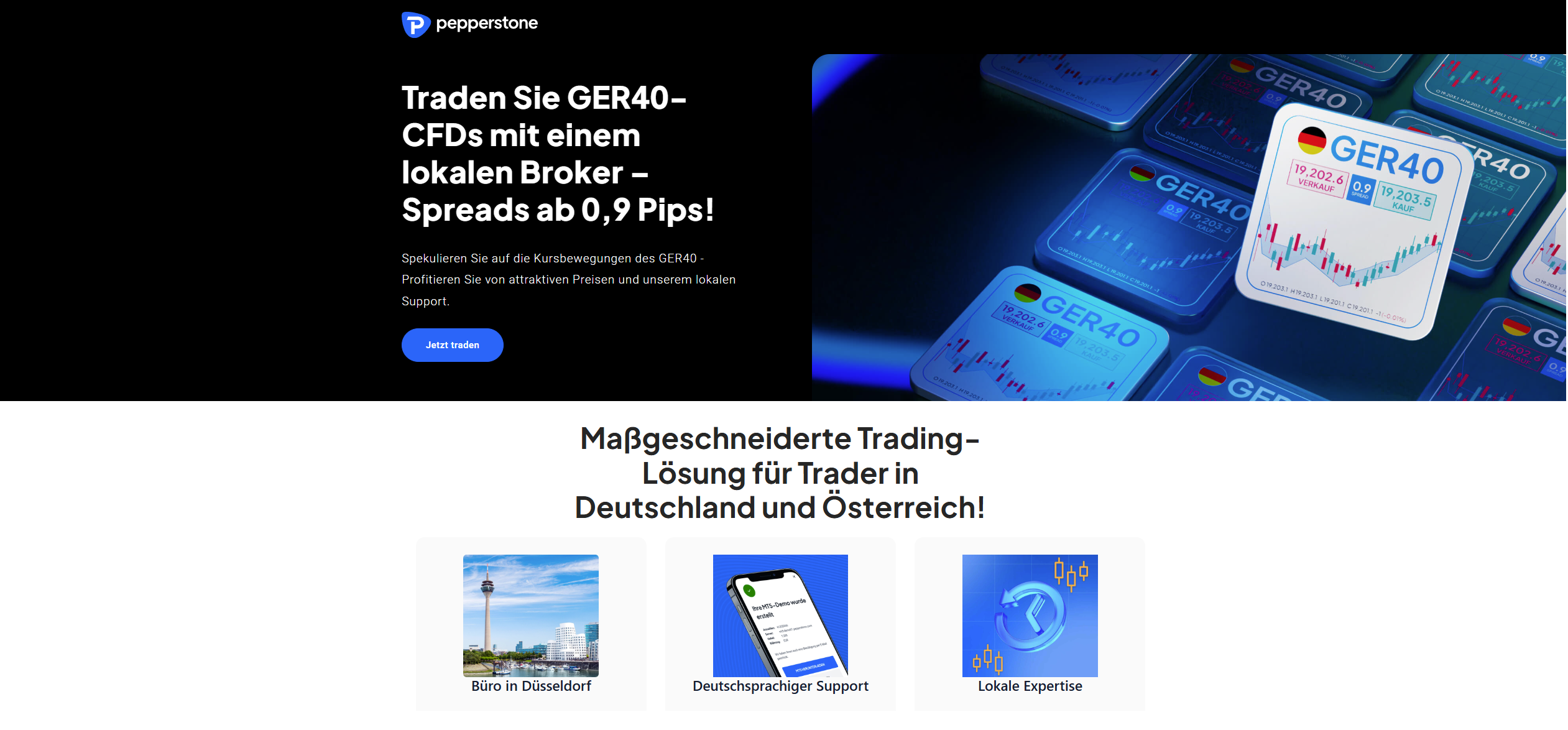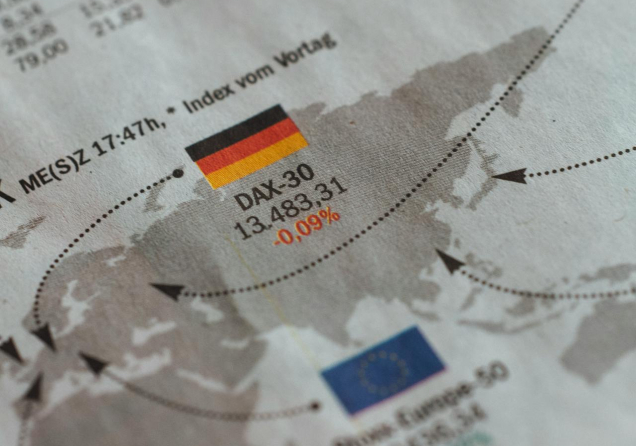GER30 vs GER40 – Are They the Same Index? Explanation
Germany's leading stock market index structurally improved in 2021, from 30 to 40 companies. The revision led to the renaming of GER30, widely used on trading platforms, to GER40. While both are still being utilized, they refer to the same underlying index, the DAX. The move was to enhance sector representation in Germany's benchmark equity index. Traders and investors tracking the German market have since switched to the extended index, which includes more large-cap companies.
What Are GER30 and GER40?
The DAX, often called GER30, was Germany's main stock index. It tracked 30 major companies listed on the Frankfurt Stock Exchange. It included well-known businesses like BMW, Siemens, and Deutsche Bank. The index represented important sectors of Germany's economy, manufacturing, banking, and consumer goods. Though its official name has changed, some traders and sites still call it GER30 out of habit.
That rebranding was done in September 2021, when the DAX was increased from 30 to 40 companies, hence the new nickname GER40. Deutsche Börse did that to modernize the index and make it a better representation of the German economy.
The new companies include:
- Zalando
- Siemens Healthineers
- Airbus
- Puma
- Sartorius
- Porsche Automobil Holding
- HelloFresh
- Symrise
- Brenntag
- Qiagen
The additions gave more representation to fast-growing industries like healthcare and tech. The expansion came with tighter regulations on profitability and transparency in a bid to promote investor confidence and enable the index to stay solid in the long run.
Interestingly, some brokers still refer to DAX40 as DAX30. One such example is a popular broker Pepperstone, which features the DAX index. This company, on the English version, still refers to it as GER30 (DAX30), while the German version already uses the updated name, GER40 (DAX40).

The English version of Pepperstone referring to DAX as GER30

The German version of Pepperstone, referring to DAX with the updated version - GER40
Are GER30 and GER40 the Same?
GER30 and GER40 are the same index, DAX, but GER40 is the newer and official name. GER30 was an old name used before the index was expanded. Most trading platforms continue to display the two names depending on their software update or local users' choice.
It’s not uncommon to find charting software and brokers still using the name GER30 for the DAX index. This may create confusion, especially among novice traders. But all of these names point to the same group of German stocks, now 40 companies in strength. The code for the index on Deutsche Böre is still DAX, GER30 and GER40, being generic trade nomenclature.
The expansion to 40 companies from 30 provided diversification for investors who use the DAX as a benchmark. Since more sectors are represented, more general economic patterns are captured in the index. This can reduce the effect that any single sector has on index movements.
GER30 vs GER40: Key Differences
The most obvious difference is in the number of companies. GER30 had thirty companies, whereas GER40 has forty. The additional ten companies have added increased sector diversification.
The second difference is how the index is weighted. The DAX is weighted by capitalization, so larger companies contribute more to performance. With 40 companies, each stock's weight is slightly reduced, lowering concentration risk. This shift might give a more balanced view of the market's direction overall.
Summary
Both GER30 and GER40 represent the DAX, the main German stock market index. While GER30 was the designation typically seen on trading systems, GER40 refers to the new variant that consists of 40 companies.
The change was made in 2021 to enhance sector representation and modernize the index composition. Investors and traders who track or trade the index should know that the two terms are synonymous, although the longer one offers broader exposure across the German economy.
Top-Tier Trusted Brokers
The table below contains links to 3rd party websites of our top partners from whom we receive compensation at no additional cost to you.



























